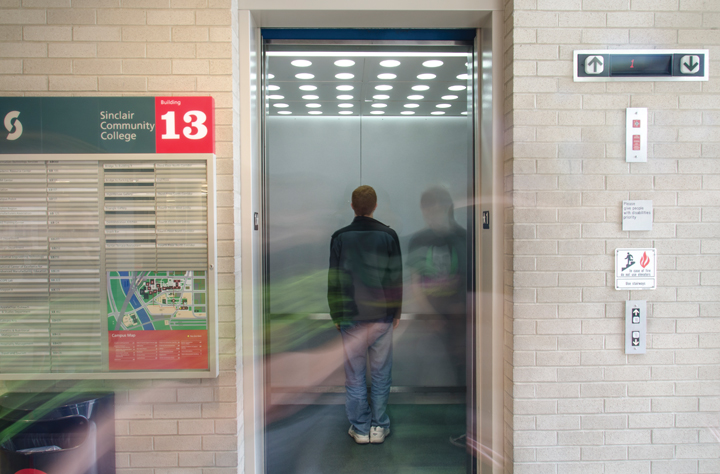Social norms are the unwritten rules that govern our daily interactions. They can be seen on campus in how we greet one another and interact – even in how we behave on an elevator.
“Social norms are typically an unwritten or implied rule about how one is expected to behave,” Associate Professor Nadien Cichy said. “How we greet people, how closely people can stand — and a lot of our non-verbal communication is a result of learning social norms.”
Cichy also said social norms dictate how we behave and how we respond to situations when it comes to verbal and non-verbal communication, adding that people typically become upset when these norms are violated.
“One of the primary reasons we have social norms at all is so we know what to expect from others around us,” she said. “So we understand how we’re expected to behave in new situations.”
Social norms are also seen as a way to manage uncertainty and can be established very quickly, according to Cichy.
“For example if a number of adults in Ohio get on an elevator and they’ve been Americans all their lives, they already understand what the norms are and they typically don’t violate them,” she said. “If you put a group of people together who come from entirely different cultures, they’re going to eventually come up with a set of norms that works in that group that won’t necessarily reflect any of their cultures.”
Eman Burgman, a first-year student at Sinclair who was born in Iran, said she had to adjust to more than a few local social norms when she first came to the United States.
“I had to get used to a lot of the little things,” she said. “Eye contact was something I was never very good at, but here in America it’s considered impolite to not look at someone when speaking to them. I’ve gotten better.”
Cichy said she uses the breaking of social norms in her classroom while teaching non-verbal communication, where she will not start the class when it is intended to, and flip through pages of a book and stare at the computer for a couple minutes.
“Eventually I started class and asked, ‘okay so, what happened there – why is class late? How do you know class hadn’t started yet,’” she said. “Sometimes I use it as a device to get people to recognize we use a lot of these norms.”
She said when social norms are broken people often get frustrated because they don’t know the unspoken rules, and the behavior of others can become unpredictable, which causes anxiety.
“When we don’t understand how we’re supposed to behave we get frustrated,” she said. “Add to that the fact that we like to predict how others will behave, so when people violate norms, their behavior becomes unpredictable and you are dealing with levels of anxiety.”
Cichy said sometimes people take social norms for granted and have a hard time understanding that others may not share specific social norms.
“Social norms are absolutely essential in order to function in a culture without constantly being confused,” she said. “The funny thing about them is that sometimes we don’t share our norms and that’s okay — it doesn’t make them bad, or unstable, or an unpredictable person, we just sometimes don’t share as many norms as we think
we do.”

